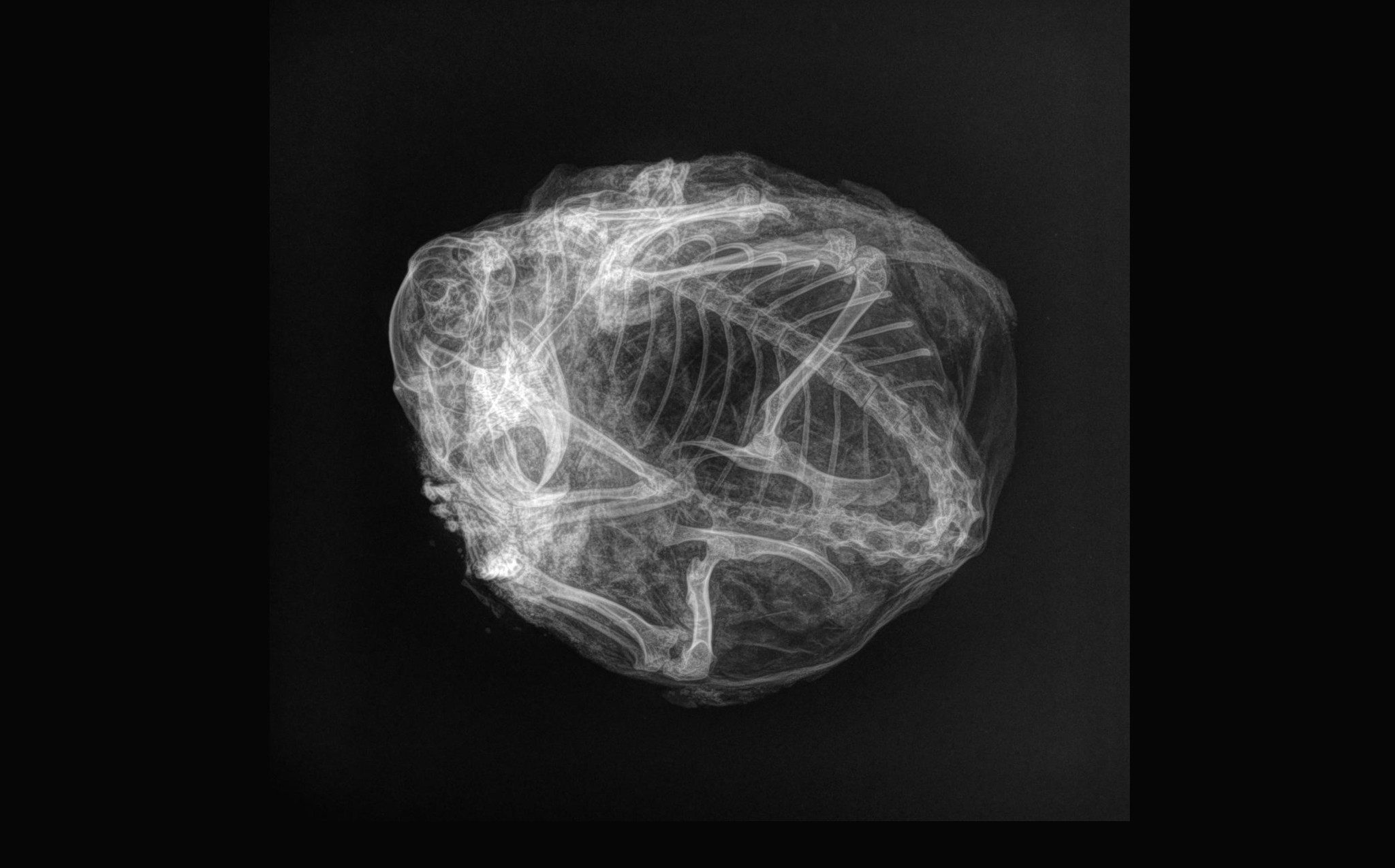Don’t be mistaken by this unassuming fur ball – it’s actually the curled-up mummified remains of a 30,000-year-old Arctic ground squirrel. Look closely and you’ll see it’s in such remarkable condition that it’s possible to make out its tiny claws.
The discovery was recently revealed by the Yukon Beringia Interpretive Centre. They explained that it was found in the frosty depths of Canada’s Yukon near Hester Creek in the Klondike Gold Fields, Trʼondëk Hwëchʼin Traditional Territory.
“It’s amazing to think that this little guy was running around the Yukon several thousand years ago,” Yukon Beringia Interpretive Centre said in a social media post.
With the help of the Alpine Veterinary Medical Centre, the squirrel underwent an X-ray which revealed its skeleton remains incredibly intact, albeit a little bit bunched up. The team added that the specimen will soon go on display at the Beringia Centre for the public to view.

X-rays showed the lil guy was curled up, perhaps hibernating. Image credit: Yukon Beringia Interpretive Centre
“It’s not quite recognizable until you see these little hands and these claws, and you see a little tail, and then you see ears,” Grant Zazula, a palaeontologist for the Yukon government, told CBC.
“I study bones all the time and they’re exciting, they’re really neat. But when you see an animal that’s perfectly preserved, that’s 30,000 years old, and you can see its face and its skin and its hair and all that, it’s just so visceral. It brings it so to life,” he continued.
Despite 30,000 years of time passing, it stayed in such good condition as it had been locked in permafrost, perfectly preserving its tissue like a prehistoric refrigerator.
Its curled-up position suggests it died in its sleep. Perhaps this poor fella was settling down to hibernate for the winter in its burrow, but became snowed under and perished.
Yukon in Canada is rich in the remains of prehistoric beasts that have been frozen in time since the Ice Age. Just last year, miners in the Trʼondëk Hwëchʼin Traditional Territory dug up a baby mammoth so well preserved that much of its fur and skin is still intact.
In 2020, a tiny 57,000-year-old mummified wolf puppy was also recovered from the area. It was in such good condition it still had its soft tissues intact and was bearing its teeth as if it was letting out a snarl.
This part of the world was home to a diverse array of animals during the Ice Age, from wild horses and woolly mammoths to Beringian lions and giant short-faced bears. Thanks to the collection of frozen characters that have been recovered, we have a relatively good understanding of this unique and wonderful ecosystem.
In other permafrost-preservation news, scientists in Russia have recently been studying the remains of an 8,000-year-old bison found in the Siberian permafrost last year. Its condition is so immaculate that some of the team think it could be possible to use the DNA to clone the specimen.
Source Link: Frozen Fur Ball Turns Out To Be 30,000-Year-Old Ice Age Squirrel